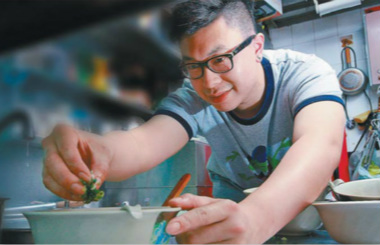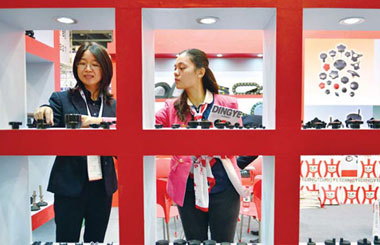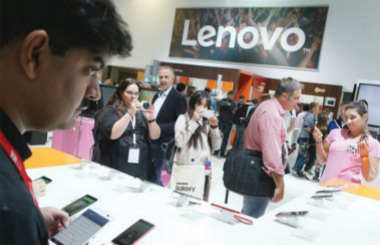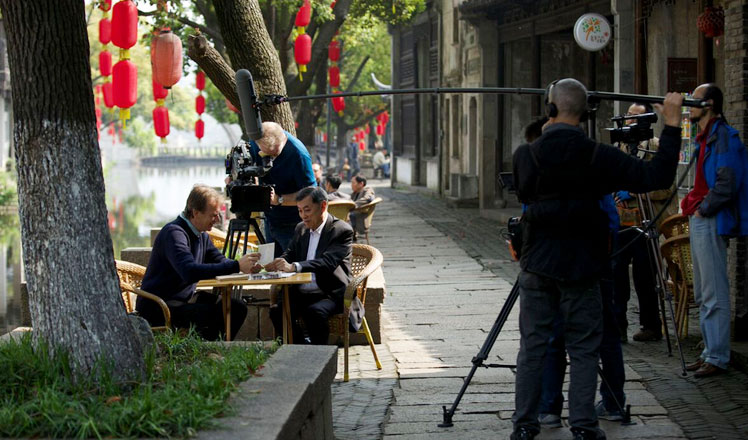Rags to riches saga underlines China's transformation
Updated: 2016-01-25 20:10
By Cecily Liu(China Daily Europe)
|
|||||||||||
 |
|
Zhang Xin [Photo provided to China Daily] |
The rags-to-riches story of Chinese real estate mogul Zhang Xin is perhaps an apt reflection of China's unprecedented economic transformation over the past 30 years, but Zhang says that China's startup boom today is just as strong.
Zhang, 50, earned her school fees as a young girl by working on assembly lines in the textile and electronics industries before going to England at the age of 19. She completed degrees in economics and worked as an investment banker in London and on Wall Street before returning to China in 1995 to found the commercial real estate development firm SOHO China together with her husband Pan Shiyi.
The business became China's largest commercial property developer in first tier cities, and in 2014 Zhang was ranked as the 62nd most powerful woman in the world.
Her fame and achievement also made her one of the young global leaders at at this year's World Economic Forum in Davos, where she shared her views on China's business environment in a panel alongside global leaders such as the managing director of International Monetary Fund, Christine Lagarde.
Sitting down for an interview in a cozy room overlooking the snow covered mountains in Davos, Zhang says China's entrepreneurial culture today is no less strong than 20 years ago when she founded her own firm, and her team now generates much revenue from a project known as SOHO 3Q, which provides office management services to startup firms.
"As I walk into SOHO 3Q, I'm attracted by this wide variety of companies. They are all young, vibrant, and have high energy," says Zhang.
SOHO 3Q was launched in February 2015 and rapidly expanded across China from two locations and 1,500 desks to more than 10,000 desks in 11 locations in Beijing and Shanghai. In October 2015, a flagship SOHO 3Q was launched at Guanghualu SOHO II in Beijing, which became the largest co-working space in the world with close to 3,300 desks.
SOHO 3Q boosts efficiency and flexibility, and it allows users to rent individual desks on a weekly basis. Made to suit the needs of today's digital savvy entrepreneurs, SOHO 3Q's services such as reserving a desk or a conference room, extending leases and making payments, can be completed on the website or on the mobile app.
The first tenants of SOHO 3Q were two girls doing movie production, and now it hosts a wide range of Chinese firms with a few dozens of staff, as well as large international companies like Uber which are rapidly expanding in China.
"China has culture of entrepreneurship and by now everyone wants to be an entrepreneur. In Europe you see vast contrast, as not many people want to do startups,"she says.
Zhang sees the waves of Western-educated young Chinese students returning to China to make the most of the economy's booming opportunities and start their own businesses as a continuation from her time, although now industries like internet and digital are the big focus.
When she started, in comparison, the property market was booming as China increasingly became urbanized and Zhang said entering the property market was an obvious decision.
Reflecting on the key reasons of her success, Zhang says "the right moment, the right timing and right partner" are key. When SOHO China was founded, there were very few residential houses and very little commercial building. "The need was obvious".
Her 15 years of experience living overseas allowed her to develop unique views on architecture, and when she returned to China she brought many Western architects to work on SOHO China projects, and consequently the firm's projects became known for architectural achievements.
In addition, her Wall Street experiences also helped her to understand the fundamentals of running her business, including how to raise capital, take the company public and speaking to investors, Zhang adds.
As a keen observer of new opportunities, Zhang grabbed the chance to transform the business model from construction based work to building management in recent years.
"The economy is transitioning from investment led to consumption led real estate market. If you look at Beijing and Shanghai, most of these cities are already built, the opportunities of buying land and building hugely reduced."
She says the Starbucks style SOHO 3Q is very profitable for her firm, and creates important communities for China's next generation entrepreneurs to realize their dreams.
"I get excited seeing those exciting companies."
As Zhang is now one of the world's most successful businesswomen, she feels there is now a change in her life as she wants to now devote more time to philanthropy work where she is able to help other talented and ambitious young people realize their dreams.
"I think at some point in life you'd want to do things beyond yourself. At this stage I want to allocate enough time to help others who are young, who need help."
With her husband, the billionaire couple is endowing $100 million dollars to support talented young Chinese students to attend universities like Harvard and Yale. The project started this year with 16 SOHO China scholars at Harvard and Yale, and Zhang's team held an engagement forum with them last October.
"We don't want to just give them the money, but give them a community, a sense of social responsibility," she says.
To contact the reporter: cecily.liu@mail.chinadailyuk.com
Today's Top News
China's growth envy of developed world
Foreigners find hard to but China's rail tickets
Rags to riches saga underlines China's transformation
Leaders address Iran's thirst for growth
UK's interest in China boosted by BBC TV series
Global push
AIIB chief vows to run clean, lean, green institution
'More Europe' to deal with 'triple crisis'
Hot Topics
Lunar probe , China growth forecasts, Emission rules get tougher, China seen through 'colored lens', International board,
Editor's Picks

|

|

|

|

|

|






